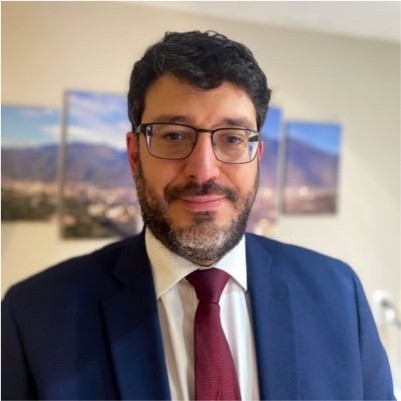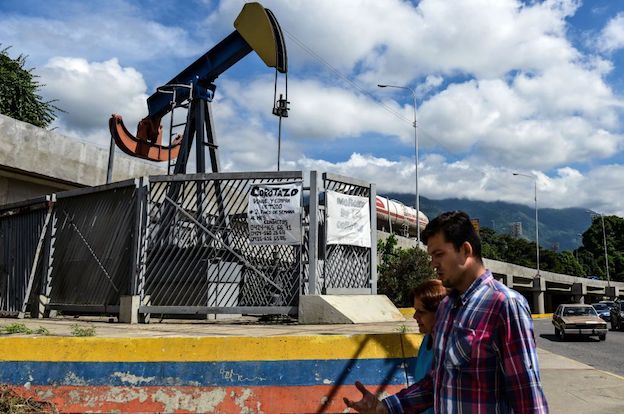Venezuela’s oil industry is in a state of collapse: PDVSA, the state-oil firm, is strapped for cash and facing intense pressure from international creditors. Production at the company has fallen by 38 percent since 2016.
Against that panorama, members of the opposition-controlled National Assembly have introduced legislation to address a complex patchwork of laws that leave PDVSA unable to seek relief from creditors through bankruptcy procedures. This last-ditch effort to pull PDVSA from the brink faces long odds: Even if it’s approved by the Assembly, President Nicolás Maduro’s Supreme Court, or his National Constituent Assembly, will likely declare it null.
But the fact that the legislation is being debated at all is a sign of progress – one that could be meaningful to Venezuela’s eventual economic recovery.
In June, PDVSA produced 1.34 million barrels of oil per day, down from the average of 2.15 million barrels per day it produced in 2016, according to OPEC. Government mismanagement and political upheaval are largely to blame for this dramatic drop in production. Meanwhile, Standard & Poor’s, a ratings agency, declared PDVSA to be in “selective default” in 2017, and the company faces bondholder claims as well as investor claims based on arbitration awards.
The seizure of oil assets would only make it more difficult for Venezuela to emerge from its political, economic and humanitarian crisis. PDVSA has struggled to ship to China, for example, since the U.S. oil firm ConocoPhillips took over crucial assets in the Caribbean after winning a $2 billion arbitration award in an international court.
It doesn’t help that “most of the oil produced does not generate cash flow to PDVSA,” in the words of energy expert Francisco Monaldi. The decline in production has aggravated cash-flow problems, which are already severe due in part to the government’s oil-for-cash commitments to countries like Russia and China. Production could fall below one million barrels per day by the end of the year, Monaldi predicts. To complicate matters further, the U.S. government recently expanded sanctions to target PDVSA’s factoring operations, a process that helps oil and gas companies increase cash flow.
The National Assembly’s law would give the company some breathing room. The proposal calls for a special bankruptcy regime for state-owned enterprises like PDVSA, since it is unclear how existing bankruptcy laws should currently be applied. While the 1955 Venezuelan Commerce Code established old-fashioned bankruptcy procedures, allowing a moratorium for companies facing temporary insolvency problems or the liquidation of companies with permanent insolvency problems, neither procedure complies with modern bankruptcy practices that are focused on the recovery of insolvent companies. And in practice, the commercial bankruptcy procedure does not even apply to state-owned enterprises like PDVSA, which are subject only to liquidation procedures conducted by the executive branch. Nor do current regulations include any of the international cross-border insolvency standards that the UN has adopted to facilitate the recognition of a domestic bankruptcy procedure abroad.
The proposed law would ensure non-discriminatory treatment among PDVSA’s creditors, as well as compliance with due process standards following the UN’s general guidelines.
This would allow PDVSA to request the recognition of a domestic bankruptcy procedure before any court in countries in which the company has assets. Following other similar regulations, the special law could also create a procedure by which PDVSA, under the control of the court, would be able to negotiate a debt restructuring with a majority of its bondholders.
The National Assembly is expected to approve the law in the coming months. Unfortunately, the government-controlled Supreme Court or National Constituent Assembly would likely declare it null, as they have done with other laws. But passage of the law would nonetheless be an important, if still symbolic, step. First, because debating and passing the legislation could lay the groundwork for a debt restructuring process in the event of a political transition. Second, because its passage would demonstrate to the international community – and weary Venezuelans – that addressing the country’s economic and social crises is indeed possible with the appropriate measures. Also, only the National Assembly can constitutionally pass laws relating to debt restructuring
In the meantime, PDVSA’s assets overseas will continue to lack special protection and, accordingly, they will be subject to claims that could aggravate the company’s production problems. Claims may be presented not only by PDVSA’s creditors, but also by creditors who own government debt and argue that PDVSA is an “alter ego” of the government.
The prospects for PDVSA aren’t good. The company is facing demands to comply with its debts without any special bankruptcy protection. The company cannot enter into debt renegotiation agreements and cannot recover its oil production – not at least without a major economic reform plan. It seems to be just a matter of time that PDVSA’s assets will be highly compromised by creditors’ claims. And if there is something worse than a debt default, is a disorganized debt default amid a political, economic and social crisis.
—
Hernández G. is a visiting fellow at the Harvard Kennedy School of Government Center for International Development









